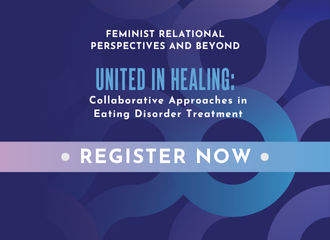Explore Categories

What is “Bigorexia”?
Bigorexia, or muscle dysmorphia, is a growing concern. Discover the key signs, symptoms, and ways to find or offer support

Rupture and Repair in the Therapeutic Relationship
Explore the importance of rupture and repair in the therapeutic relationship. Learn how addressing disconnections with empathy, curiosity, and accountability strengthens the alliance and supports healing from eating disorders.

Hypermetabolism and Eating Disorders: What You Need to Know
Hypermetabolism and eating disorders are part of recovery. Learn why this phase is normal, its signs, and how to nourish your body with care.

Binge Eating Disorder: What Are the Symptoms?
Binge eating disorder often includes emotional and behavioral signs. Learn how to recognize them and seek help with compassion and care.

5 Harmful Stereotypes About Binge Eating Disorder – and Why They’re Wrong
Discover the truth about Binge Eating Disorder (BED) as we debunk five common stereotypes that fuel misunderstanding.

What is Thin Privilege?
Explore how thin privilege & societal beauty standards impact body image, access to care, & eating disorder treatment across all body sizes.

Register Now for The Renfrew Center Foundation’s 2025 Conference for Professionals
Join The Renfrew Center Foundation at our 35th Annual Conference as we recognize the importance of connecting eating disorders with the wider mental health community.

Eating Disorders: Myths vs. Facts
Discover the truth about eating disorders by debunking common myths! Understanding accurate information is a step towards support!

How Eating Disorders Are Diagnosed
Learn how eating disorders are diagnosed and why early assessment is key to effective treatment and recovery.
Reach Out to Us
Talk with a Program Information Specialist at the number above to learn more about our
services and to schedule an assessment. Or, fill out the information below and we will contact you.
